
Obviously, not everyone has room for a huge composting unit in their yard or garden, which is why the Chinese company Oklin has developed a composting machine that any professional kitchen would be proud to own. Oklin has models suited to kitchens of all sizes, ranging from machines that can compost 25 kilo (55 lbs) per day, all the way up to 1350 kilo (3000 lbs) per day. The machines are well sealed so there is no smell and the composting process takes just 24 hours to turn your peels into usable soil. It’s a great solution for a circular kitchen
Cooking results in food leftovers, from egg shells to vegetable stalks. Some people feed their leftovers to the chickens, other use them to make soup, but most people throw these leftovers into their organic waste bins. That’s a missed opportunity. You can just as easily compost leftovers to make nutrients for plants and shrubs. In particular for restaurants that procure their products directly from a grower, feeding these vegetables with their own compost creates genuine circularity.


The United nations has put the problem of food wastage high up on the agenda in Asia. In China alone, 6% of all food produced is thrown away. That’s enough food to feed 100 million people. The Singaporean company Good for Food developed the Insight, a waste bin that uses a camera and sensors to precisely monitor discarded food. It registers weight, type of food and the time it is discarded.
A report is generated based on this information, which shows the kitchen owner how much food ends up in the bin, how much these discarded products cost and the ecological footprint they create. Based on this data, the kitchen can calculate how much food to prepare going forward, chefs can come up with new dishes using leftover food that is systematically binned and over the long term it is possible to verify whether any measures they take are truly effective.

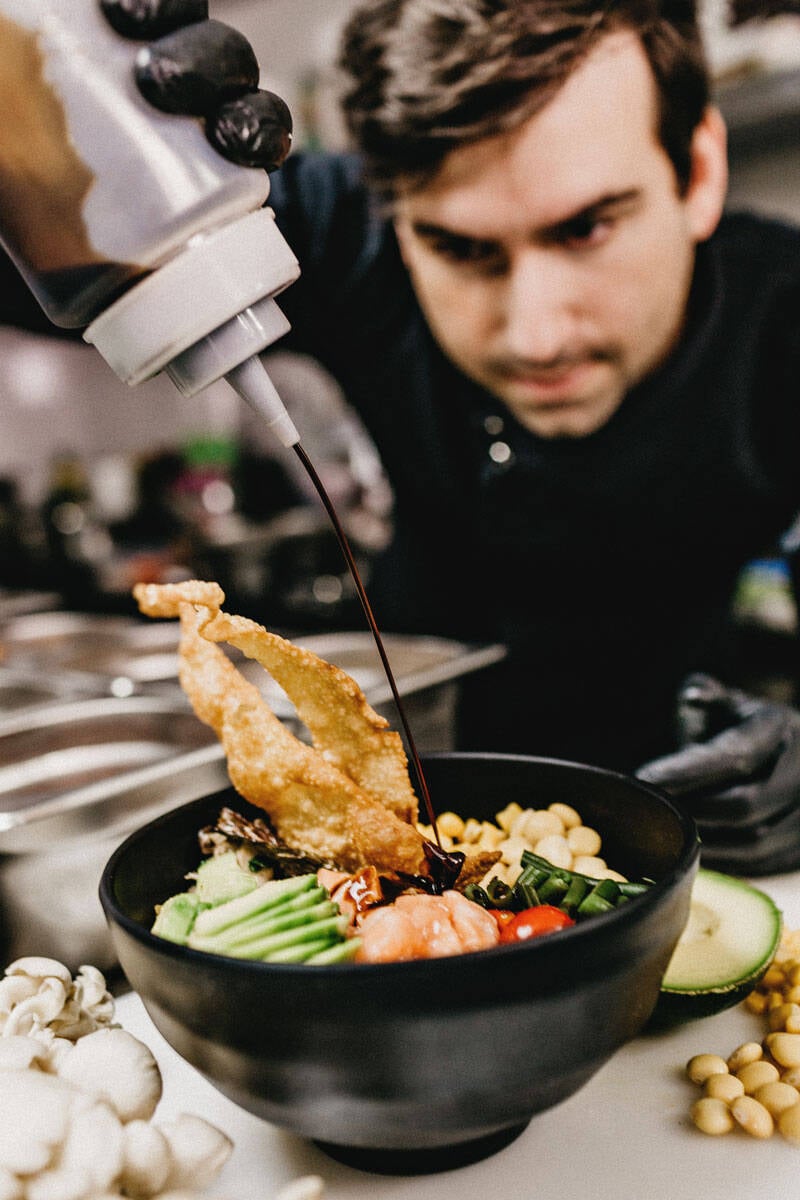
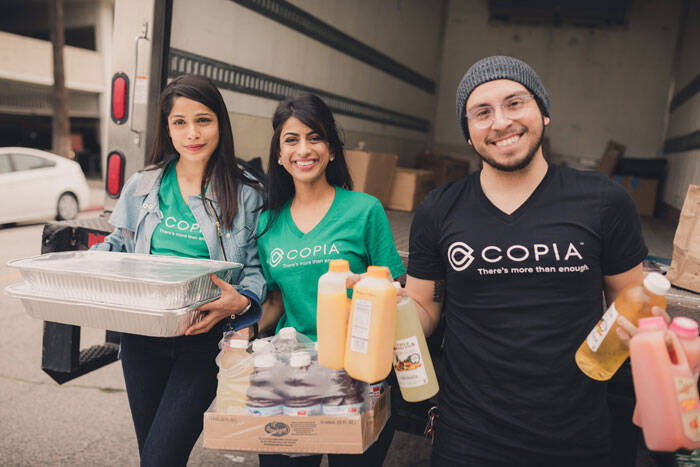
US company Copia enables its customers to have their cake and eat it. The enterprise is based in San Francisco but operates throughout the US and Canada and aims to help combat hunger as well as food wastage.
They enable non-profit organisations to acquire leftover food products and meals from restaurants and shops that are registered with them. Copia picks up leftover food products and meals, wraps them properly and then delivers them to organisations. This solves the logistics issue that many hospitality enterprises struggle with. In addition, Copia helps the businesses giving away food to collect data about their leftovers, giving them better insight into how much food they are discarding every day.


The best way to combat food wastage is to prevent it. Leanpath. is the ideal tool for this purpose. The company was established in 2004 and has developed a technology enabling kitchens to weigh, photograph and register leftovers (including the cost of discarded food) allowing more accurate measurements and savings to be made in the future.
In addition, the photos of leftovers enable staff to come up with new ways to use the leftovers in other dishes. For example, using leftover grilled salmon steaks to make salmon cakes. Leanpath’s technology can make a particularly significant difference in large, commercial kitchens that might supply multiple institutions.

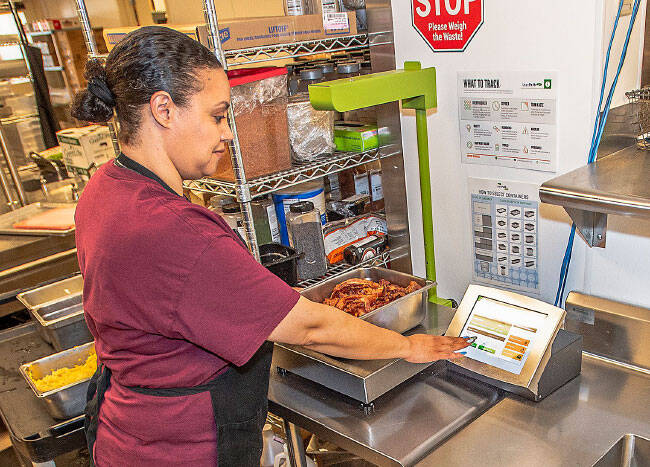
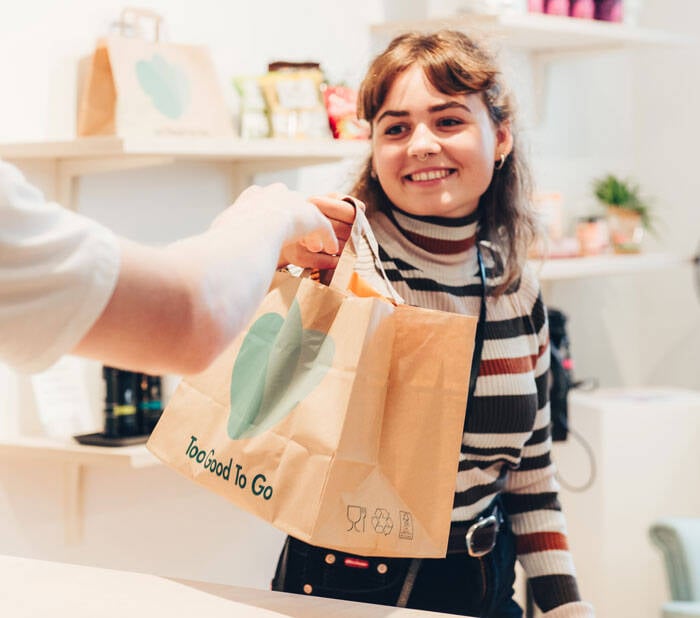

Too Good to Go is a Danish initiative that has been rolled out throughout Europe by now. Consumers can use an app to obtain cheap meals that would otherwise be discarded. Every day, companies, shops and hospitality businesses can register and sell products or meals that would otherwise be thrown away.
How does it work? As a restaurant, once you’re registered you indicate each day what you have left over and customers can purchase the products or meals online and then arrange a time to pick up their orders.







Food wastage has become an issue for organisations of all shapes and sizes. However, considering the future in which a global population of nine billion people will require gigantic amounts of food, it’s important to raise awareness of this problem even more. That also applies to food services, which are responsible for 12% of the total food wastage.

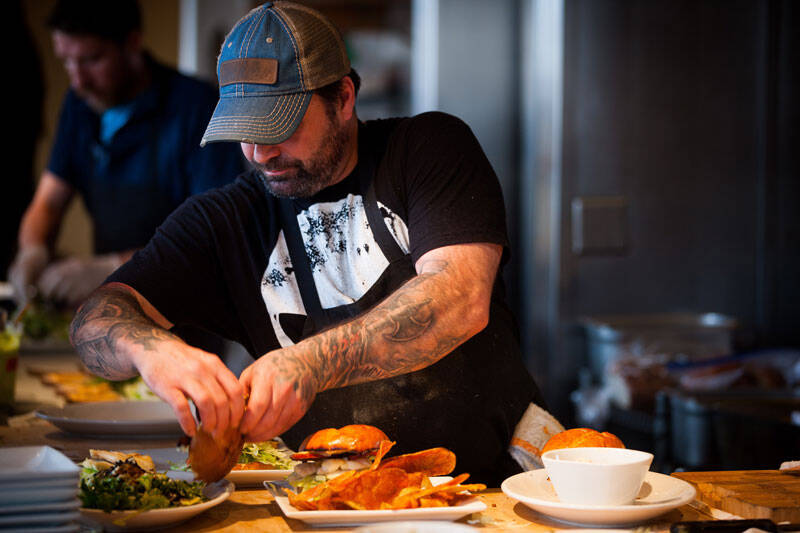
LET INNOVATIONS DO THE WORK






INSIGHTS TOOLS
4 min

Too Good to Go is a Danish initiative that has been rolled out throughout Europe by now. Consumers can use an app to obtain cheap meals that would otherwise be discarded. Every day, companies, shops and hospitality businesses can register and sell products or meals that would otherwise be thrown away.
How does it work? As a restaurant, once you’re registered you indicate each day what you have left over and customers can purchase the products or meals online and then arrange a time to pick up their orders.




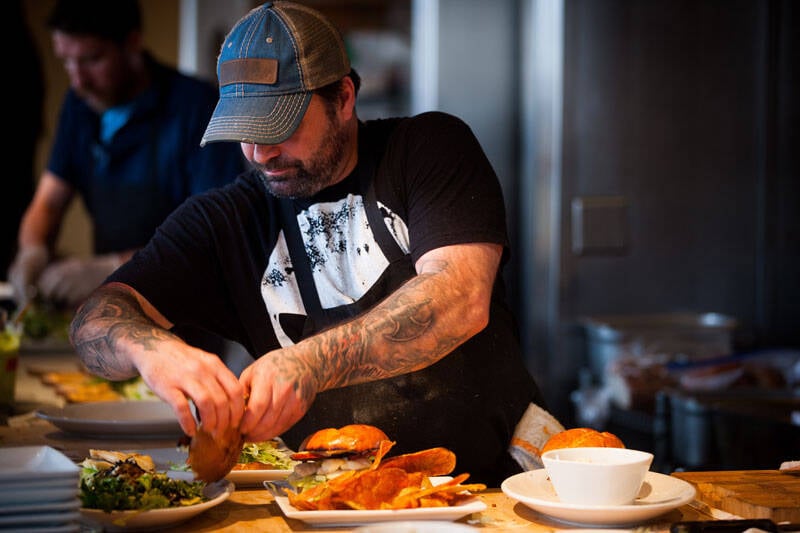
Obviously, not everyone has room for a huge composting unit in their yard or garden, which is why the Chinese company Oklin has developed a composting machine that any professional kitchen would be proud to own. Oklin has models suited to kitchens of all sizes, ranging from machines that can compost 25 kilo (55 lbs) per day, all the way up to 1350 kilo (3000 lbs) per day. The machines are well sealed so there is no smell and the composting process takes just 24 hours to turn your peels into usable soil. It’s a great solution for a circular kitchen
Cooking results in food leftovers, from egg shells to vegetable stalks. Some people feed their leftovers to the chickens, other use them to make soup, but most people throw these leftovers into their organic waste bins. That’s a missed opportunity. You can just as easily compost leftovers to make nutrients for plants and shrubs. In particular for restaurants that procure their products directly from a grower, feeding these vegetables with their own compost creates genuine circularity.

The United nations has put the problem of food wastage high up on the agenda in Asia. In China alone, 6% of all food produced is thrown away. That’s enough food to feed 100 million people. The Singaporean company Good for Food developed the Insight, a waste bin that uses a camera and sensors to precisely monitor discarded food. It registers weight, type of food and the time it is discarded.
A report is generated based on this information, which shows the kitchen owner how much food ends up in the bin, how much these discarded products cost and the ecological footprint they create. Based on this data, the kitchen can calculate how much food to prepare going forward, chefs can come up with new dishes using leftover food that is systematically binned and over the long term it is possible to verify whether any measures they take are truly effective.
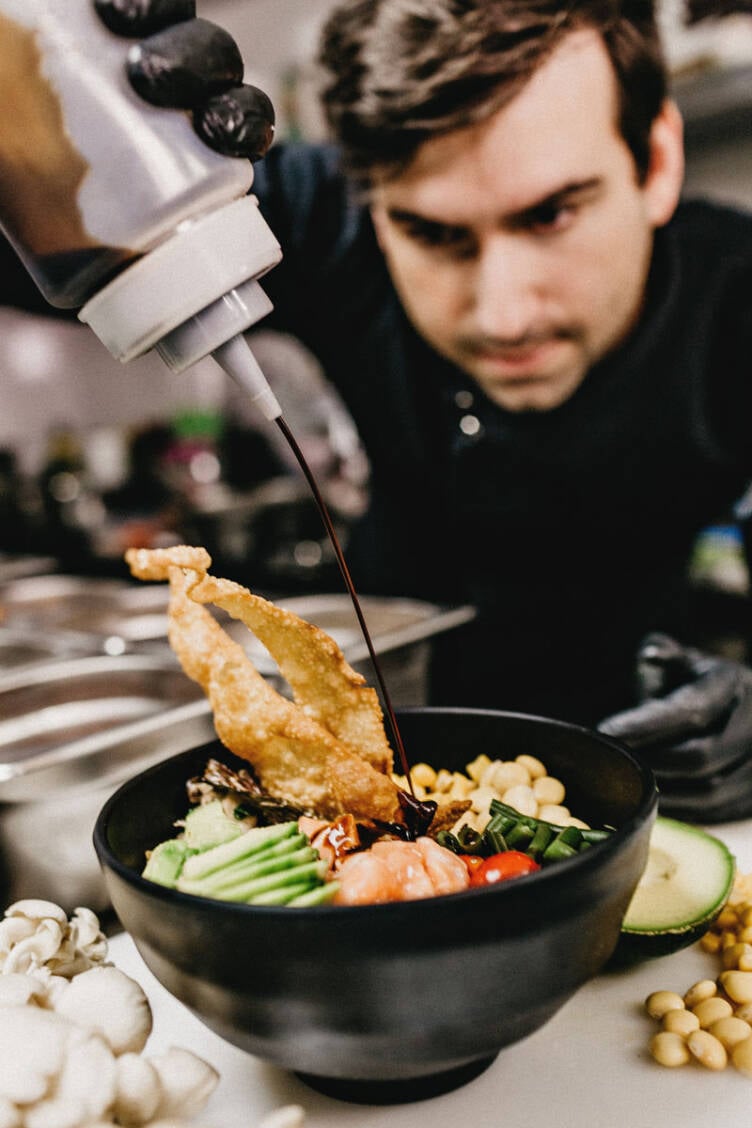

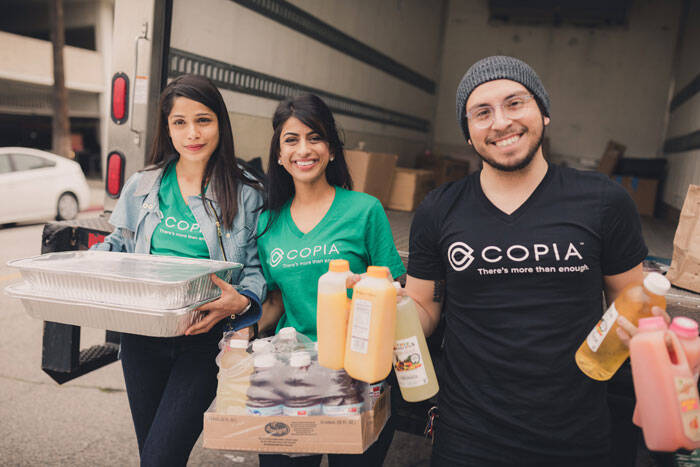
US company Copia enables its customers to have their cake and eat it. The enterprise is based in San Francisco but operates throughout the US and Canada and aims to help combat hunger as well as food wastage.
They enable non-profit organisations to acquire leftover food products and meals from restaurants and shops that are registered with them. Copia picks up leftover food products and meals, wraps them properly and then delivers them to organisations. This solves the logistics issue that many hospitality enterprises struggle with. In addition, Copia helps the businesses giving away food to collect data about their leftovers, giving them better insight into how much food they are discarding every day.

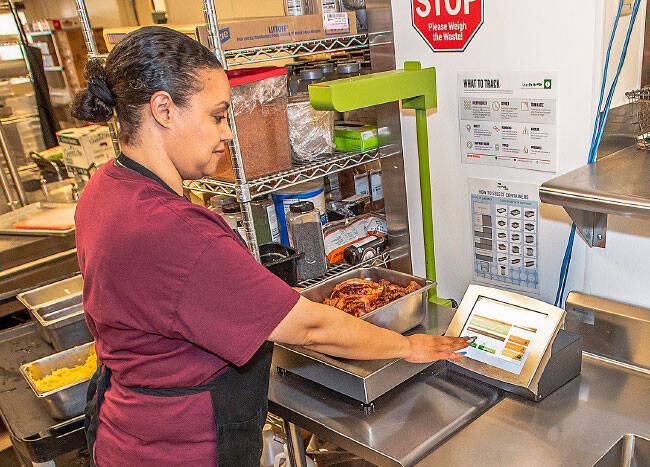
The best way to combat food wastage is to prevent it. Leanpath. is the ideal tool for this purpose. The company was established in 2004 and has developed a technology enabling kitchens to weigh, photograph and register leftovers (including the cost of discarded food) allowing more accurate measurements and savings to be made in the future.
In addition, the photos of leftovers enable staff to come up with new ways to use the leftovers in other dishes. For example, using leftover grilled salmon steaks to make salmon cakes. Leanpath’s technology can make a particularly significant difference in large, commercial kitchens that might supply multiple institutions.


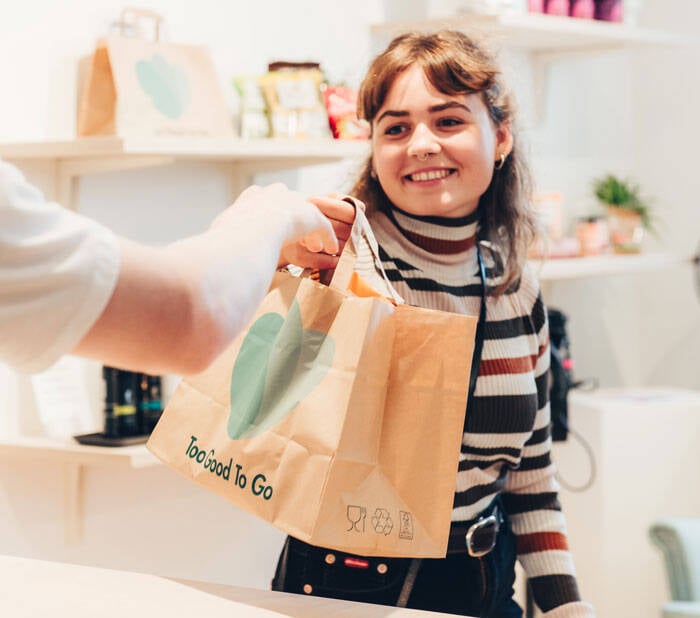
Food wastage has become an issue for organisations of all shapes and sizes. However, considering the future in which a global population of nine billion people will require gigantic amounts of food, it’s important to raise awareness of this problem even more. That also applies to food services, which are responsible for 12% of the total food wastage.

Nynke van Spiegel Wouter Noordijk

Thanks to technology and innovation, hospitality businesses can rely on a growing arsenal of tools, apps and devices to combat food wastage. Food Inspiration presents a selection of these solutions.















